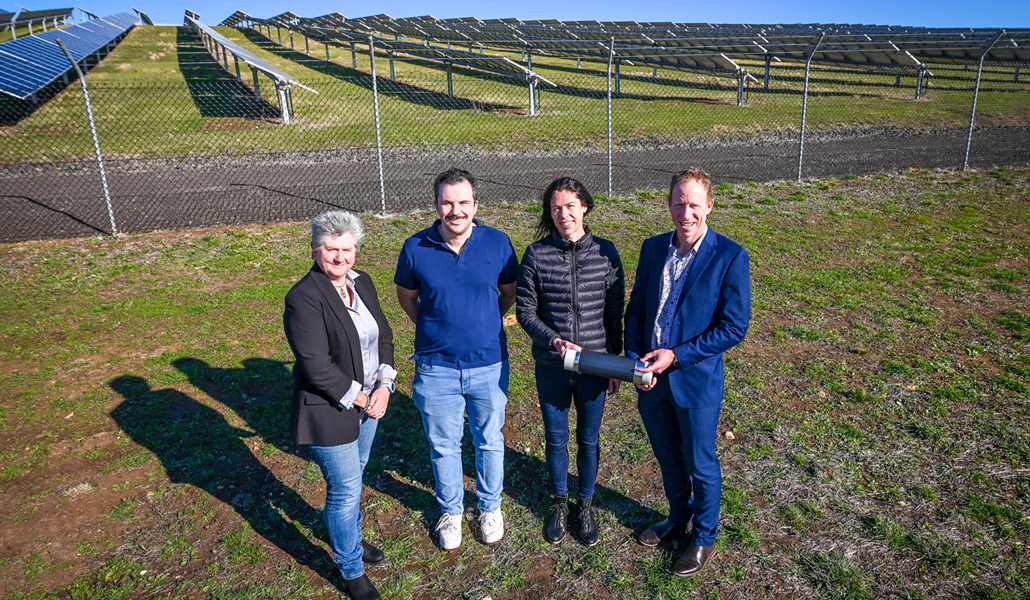About us
Barwon Water partners with universities for groundbreaking biochar research
31 Jul 2025
Barwon Water is partnering with Deakin and RMIT universities to explore how biosolids from wastewater treatment, household food scraps, garden clippings, and industrial waste can be transformed into a remarkable product called biochar.
Research will focus on how biochar, a carbon-rich, charcoal-like material can be used in agriculture to improve soils for crops, locking away carbon for hundreds of years.
Using a combination of lab, greenhouse and farm trials at the Deakin University Waurn Ponds Campus, different biochar formulations will be developed to support soil fertility and crop yields, alongside detailed assessments of the costs, benefits and impacts of its use in agriculture.
Research will also explore how biochar can be used as a replacement for fossil-derived carbon in battery production. Biochar has potential as the anode active material within sodium-ion batteries, a safer, cheaper battery technology.
Barwon Water Managing Director Shaun Cumming said, ‘We’re accelerating our research to unlock high-value commercial applications for biochar, at our Black Rock Water Reclamation Plant in Connewarre’.
‘Through our Regional Renewable Organics Network (RRON) project, we’re supporting building a circular economy in the Geelong region, revolutionising waste management to turn organic waste into sustainable products like biochar, which enrich soils and capture carbon, benefiting local farmers and households,’ he said.
The new research program is part of Deakin’s 'REACH' (Recycling and Clean Energy Commercialisation Hub) which fosters collaboration between industry, researchers and partner institutions to address environmental challenges and drive a sustainable future.
We’re also working with RMIT's new PYROCO equipment, which bakes organic waste into safe, high-quality biochar, to improve biochar processing engineering and production.
This new partnership follows on from earlier research on biochar trials, processing and battery anode materials with Deakin, RMIT and other industry partners.
Barwon Water’s RRON project aims to process approximately 60,000 tonnes of biosolids from Barwon Water’s Water Reclamation Plants, 40,000 tonnes of organic food and garden waste, and 14,000 tonnes of municipal green waste and commercial and industrial organic waste annually.
This research will support and accelerate our RRON project and help reduce costs associated with treating biosolids.
More information is available on our Regional Renewable Organics Network at Black Rock Your Say page.

Deakin University Professor of Environmental Engineering Wendy Timms, Research Fellow Aydin Enez, Associate Professor Nolene Byrne, and Barwon Water Managing Director Shaun Cumming holding carbon-coated aluminium foil battery technology at Deakin’s Waurn Ponds campus Renewable Energy Microgrid and solar farm.